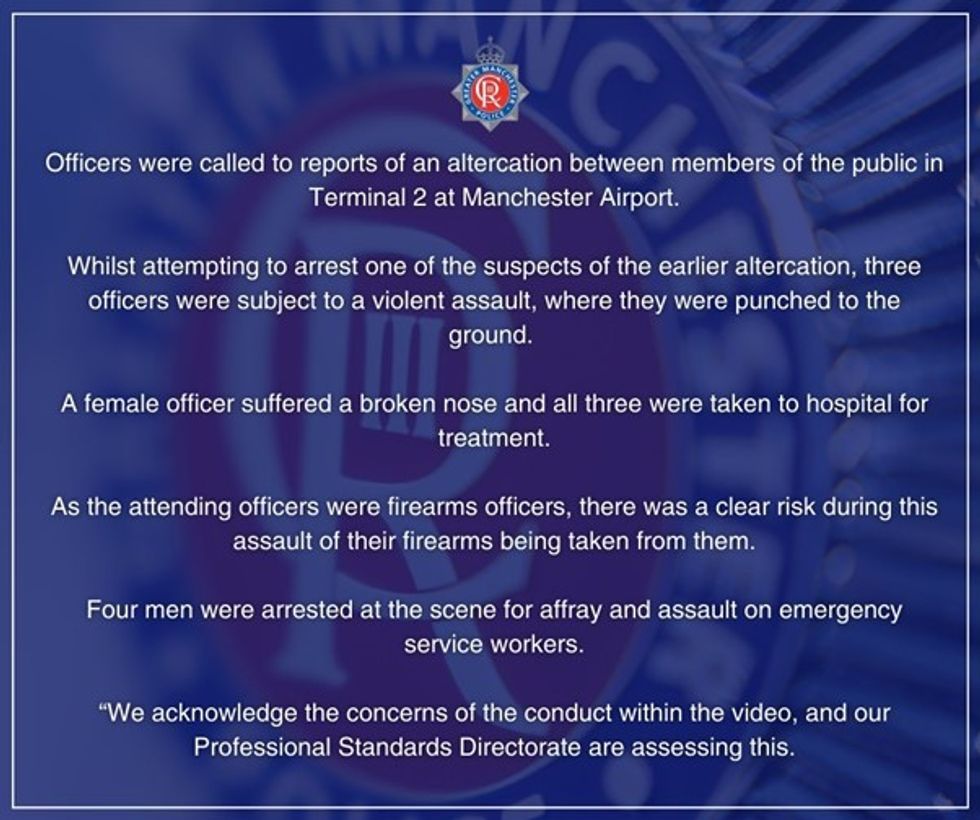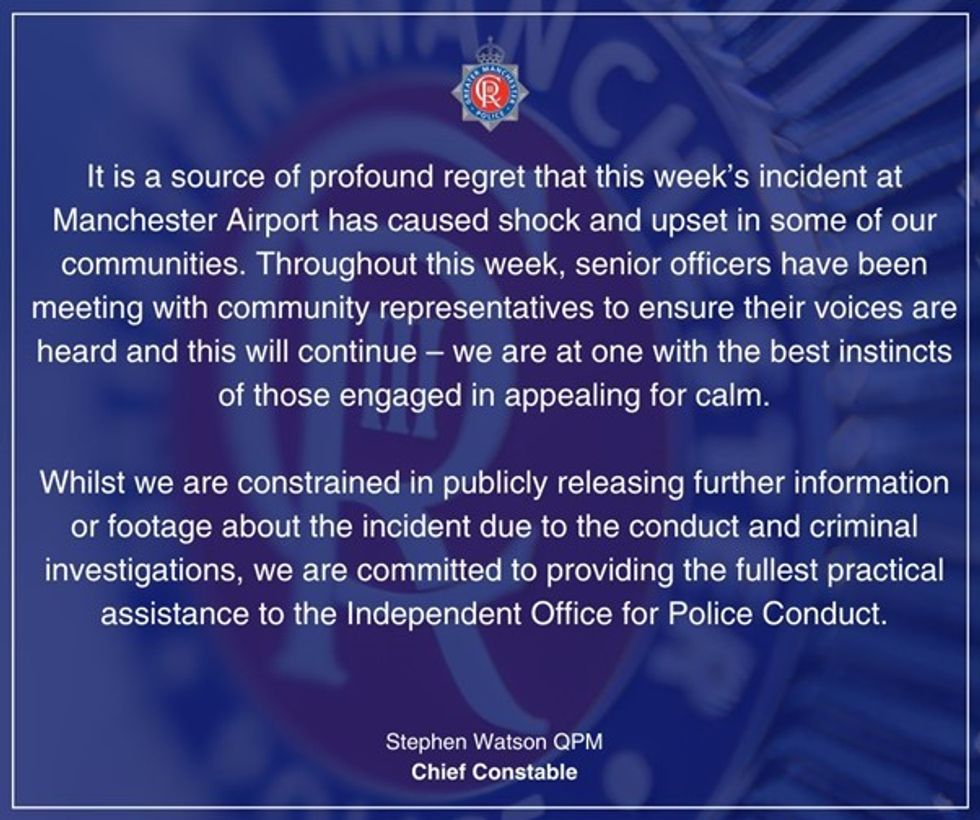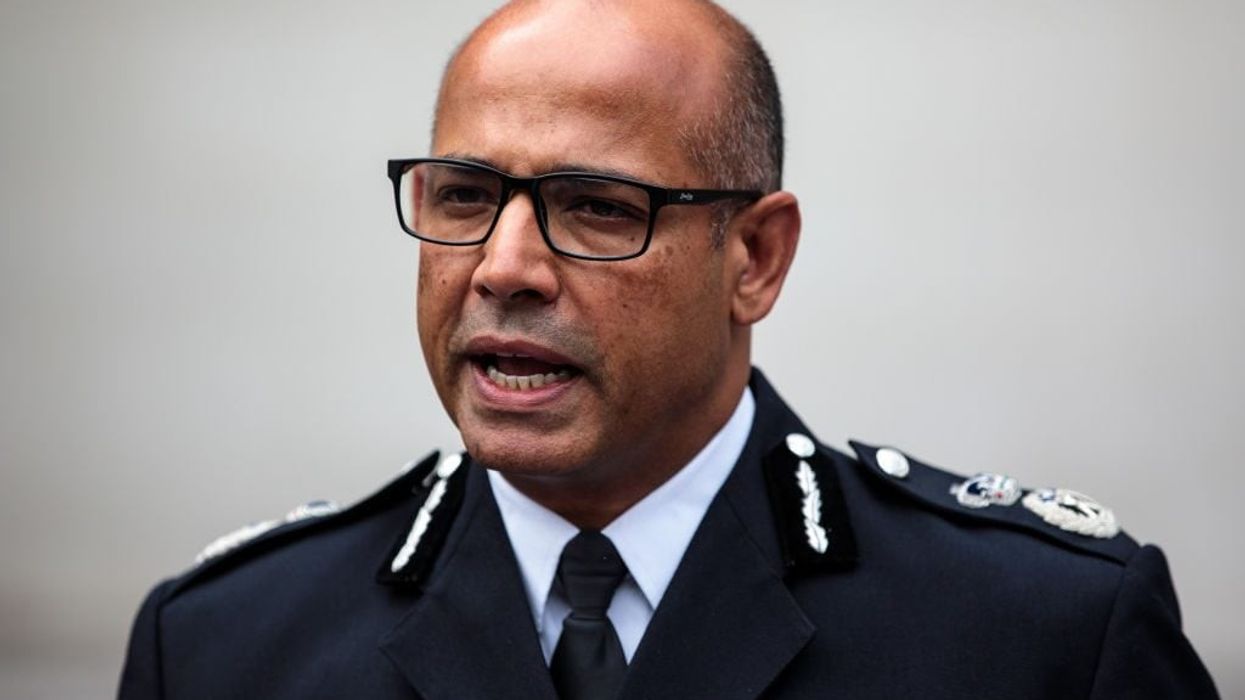THE police officer who kicked and stamped on the head of a Muslim man while he was on the ground after being tasered was a “coward”, Britain’s former top south Asian cop has told Eastern Eye.
Neil Basu, the UK’s former head of counter terrorism, also warned that that incident last week (24), filmed by travellers at Manchester Airport could harm confidence in policing.
The police watchdog, the Independent Office for Police Conduct (IOPC), confirmed it had begun a criminal investigation into a Greater Manchester Police (GMP) constable for assault.
The footage went viral on social media, and it was shown on mainstream news channels including Sky News.
GMP eventually suspended the unnamed officer after initially merely relieving him of his duties.
“Coward runs through my mind, I have to be honest,” said Basu when asked what he thought about the police officer’s actions, “and don't forget, I was the head of armed policing in the Met, so I have massive respect for armed officers and what they do.
“They know that I stood up for them many, many times, and I've deployed them many times.
“I was one of the most experienced strategic firearms commanders and CT (counter terrorism) commanders in the United Kingdom, so I have great respect for them, and almost every firearms officer that I have ever deployed, or I ever worked with or have ever seen trained has been more professional than that.
“The other thing is, I've faced life threatening situations myself as a police officer, I understand what it feels like to be fighting for your life.”
Confidence in policing
The IOPC served the officer with what it described as “a disciplinary notice”.
This is usual in such investigations, and in this case it informs the constable that he is being investigated for potential gross misconduct for several claims of breaches of police professional standards.
That includes his use of force during the arrest.
“I don't know all the circumstances that incident,” Basu continued, “and clearly the biggest problem young and currently serving police officers go up against is citizen journalism, editing stuff to make it look as bad as it can possibly look.
“But it's difficult to make that scene look any worse than it actually is, because even if the context is correct, and we've heard a lot of it today, that they were viciously assaulted, that three officers were hospitalised, the female officer had a nose broken, that they were attacked first, it doesn't matter.
“Our job is not an eye for an eye, we have to be better than that, we have to be more professional than that.
“It isn't just our job to fight back, as hard as we can, and more brutally after the event is finished, that cannot be our job.
“We are never going to win the trust and confidence in the public, win it back, because we did have it for a while.
“We're never going to win it back, if that's the way we react, and the person who knew that best was a guy called Robert Peel [the prime minister and home secretary who created the modern police force] who wrote in 1829 that you will get less trust and confidence for more force you use.”
Disproportionate action
On the day, Greater Manchester Police said they were called to an “altercation” in Terminal 2 of Manchester Airport.
They said tried to arrest a suspect when three of their officers were violently assaulted.
The attack left a female officer with a broken nose, said the statement.
Critics took to social media complaining that the reaction by the police was disproportionate.
But the Reform MP, Lee Anderson, who has a track record for accusing the police of being “soft”, leapt to GMP’s defence.
He told the media that he would give a medal to the officer.

The solicitor for the family of the man who was kicked in the head, Akhmed Yakoob, revealed that a CT scan showed his client, Muhammad Fahir Amaaz, had "a cyst on his brain".
Yakoob is also representing Amaaz’s brother, Amaad.
It emerged that another brother, who was not involved in the incident, is a serving GMP officer.
On Saturday (27), the Manchester Evening News obtained footage which Eastern Eye has not been able to verify.
It appeared to show the moments leading to the fight between the police and south Asian men.
This was not the first critical event for Greater Manchester Police in the past fortnight.
A report, commissioned by the Greater Manchester mayor and police and crime commissioner, Andy Burnham, criticised the force of “humiliating” people in custody.
Responding to the latest incident, GMP’s chief constable, Stephen Watson, said he regretted the upset it caused and appealed for calm.

Community relations
Basu, the former Met assistant commissioner, told Eastern Eye that the GMP officer’s actions would damage community relations.
“I write about this a lot, my entire career is about dealing with gangsters, murder, homicide, corrupt cops, counter terrorism, deaths in police custody.
“And the most famous ones were, in recent living memory, are obviously Mark Duggan, [who was shot dead by a police marksman] which saw the world set alight.
“But if you know your history like I do, you can go back to the [accidental] shooting of Cherry Gross [which precipitated the Brixton riots in 1985].
“You can go back to Broadwater Farm [1985 riots], you can talk about those incidents that sparked those riots in the past.
“The reason those riots are sparked is because you have no trust and confidence from the very community that feels over policed and under protected.
“And whenever a video like that goes out, because you don't have that confidence, their first thought is, is not well, you were under attack, so you're trying to defend yourself, it's you’re a racist, brutal cop.
“Now, that feeling hasn't changed since probably the 50s and 60s, and we have got to start looking at ourselves and say, why hasn't that feeling changed?
“That might be in the past to us, because we say we're new, and progressive.
“We're mostly not like that, and we go, why hasn't that feeling changed?
“What is it that we haven't done to win that trust and confidence back?
“And I think it starts with admitting you are what you are.”




